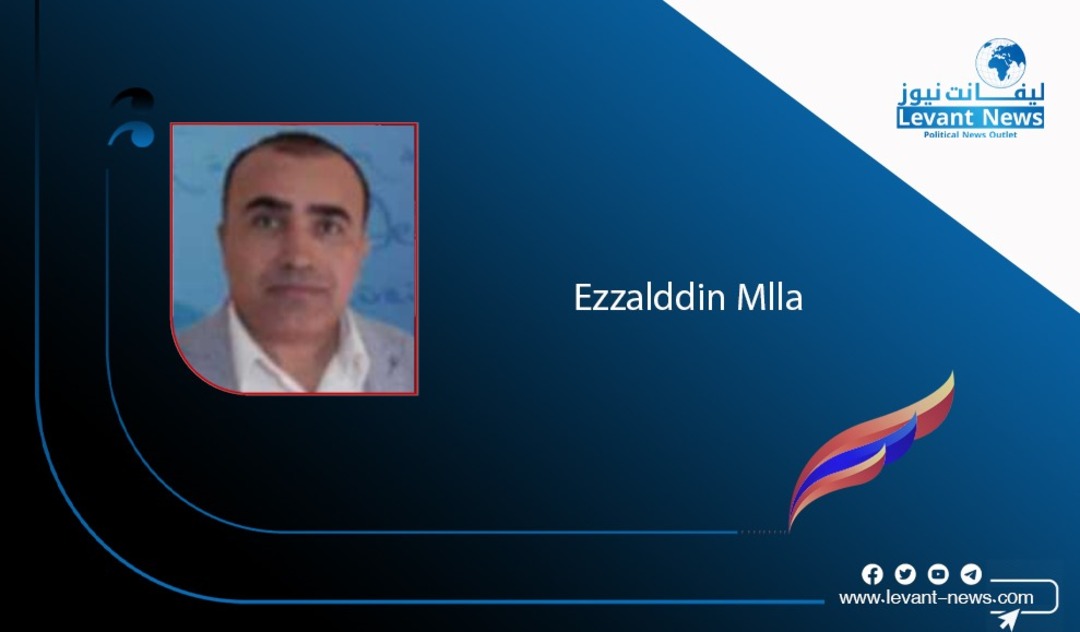-
The Kurds in West Kurdistan ..and the Negotiation Gamble

Over the past decade, Syria has experienced profound transformations that completely overturned its political and social landscape, leading to the breakdown of the state's structure and the loss of control over large parts of its territory. After the fall of the regime that ruled the country for decades, many anticipated a new era filled with peace and stability. However, Syria plunged into a deeper cycle of conflict—an unprecedented crisis that evolved into a multidimensional theater of regional and international struggles, each seeking to advance its own interests at the expense of national unity and the future of its people. The Syrian crisis is no longer merely an internal conflict; it has become a battleground for regional and global scoresettling, which heightened tensions, intensified sectarian, ethnic, and geographical divisions, and threatened every hope for national unity.
In the midst of this complex conflict, the Syrian people have borne the burden of accumulated crises. Wars have destroyed community structures, created unprecedented humanitarian suffering through internal and external displacement, and caused economic collapse alongside the deterioration of basic services. Today, Syrians live in a state of anxiety and anticipation, haunted by fears that the transitional phase might escalate into another conflict, further deepening their suffering and depriving them of a chance to live in a safe and stable country. The fragility of state institutions, coupled with mutual distrust among different parties, makes the path toward peace fraught with obstacles—especially amid a crippling economic crisis that threatens social peace and increases the likelihood of explosions.
Within this context, the Kurds stand out as an authentic and vital part of Syria’s national fabric. Yet, they face one of the most severe phases of marginalization and political, social, and cultural exclusion in modern Syrian history. Their suffering is not merely a product of current circumstances; it is an extension of long-term policies aimed at negating their identity and depriving them of fundamental rights. They have been marginalized through the removal of political representation, prevented from expressing their culture and language in schools and media, and deprived of social and subsistence rights, leading to complex isolation despite constituting a large segment of the population. This marginalization has not deterred their demands; instead, it has driven them to organize politically and strive to establish clear representative entities, foremost among which is the National Kurdish Council, working to unify their efforts domestically and represent them internationally.
Today, the National Kurdish Council is the official platform representing the aspirations of Syrian Kurds for rights and political participation. However, it faces significant challenges, including internal diversity within the Kurdish movement, differences in visions and strategies, as well as the complexities of negotiations with other Syrian forces and regional and international dynamics. Given these challenges, diplomatic dialogue appears unavoidable—an essential route to finding peaceful solutions that achieve tangible political and social gains, far from the ongoing destructive conflict that exhausts resources and deepens civilian suffering.
The Hasaka Conference held on April 26 is a pivotal milestone in the history of Kurds in West Kurdistan; it brought together various factions of the Kurdish movement around a unified vision that seeks to transcend differences and establish a cohesive negotiation stance with the interim authority in Damascus. This vision does not only focus on political demands but also encompasses protecting cultural identity and securing economic and social rights, forming a comprehensive framework that reflects the aspirations of Kurds for a future Syria. This integration of political, cultural, and economic aspects reflects a deep understanding that genuine peace cannot be achieved without full recognition of diversity and the building of mutual understandings that promote justice.
The Kurdish issue in Syria cannot be addressed in isolation from regional influences, as neighboring states play a central role in shaping the future of the Kurds. For example, Turkey views the Syrian Kurdish presence with suspicion and regards it as a threat to its national security, complicating any comprehensive internal resolution. Simultaneously, several international powers exploit the Kurdish file in their geopolitical struggles. This makes it crucial for the Kurdish movement to adopt a smart and balanced foreign policy that safeguards its interests and opens new horizons within its regional and international environment.
Achieving stability in Syria, especially amid its significant ethnic, sectarian, and religious diversity, requires building a state based on principles of justice and equality rather than exclusion of any party. Any political solution that marginalizes or diminishes Kurdish rights will only threaten the entire political process, for lasting and comprehensive peace can only be realized through involving all components in decision-making and establishing democratic institutions that respect human rights and ensure equal opportunities for development and a decent life.
The current transitional phase in Syria is a rare historic opportunity to end years of bloody conflict and begin a new era of unity and coexistence. However, this opportunity will only materialize if seized wisely and with genuine political will to resolve outstanding issues, especially the Kurdish issue, which constitutes a cornerstone of stability. Political and diplomatic dialogue, based on the vision of the Hasaka Conference, is an ideal path to establishing understanding foundations upon which Syria’s future can be built. The homeland needs a unifying vision that embraces all components, respects diversity.
Zakliden Malla
You May Also Like
Popular Posts
Caricature
opinion
Report
ads
Newsletter
Subscribe to our mailing list to get the new updates!




















